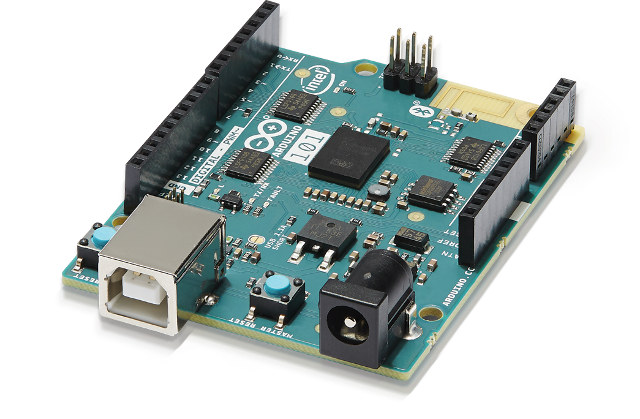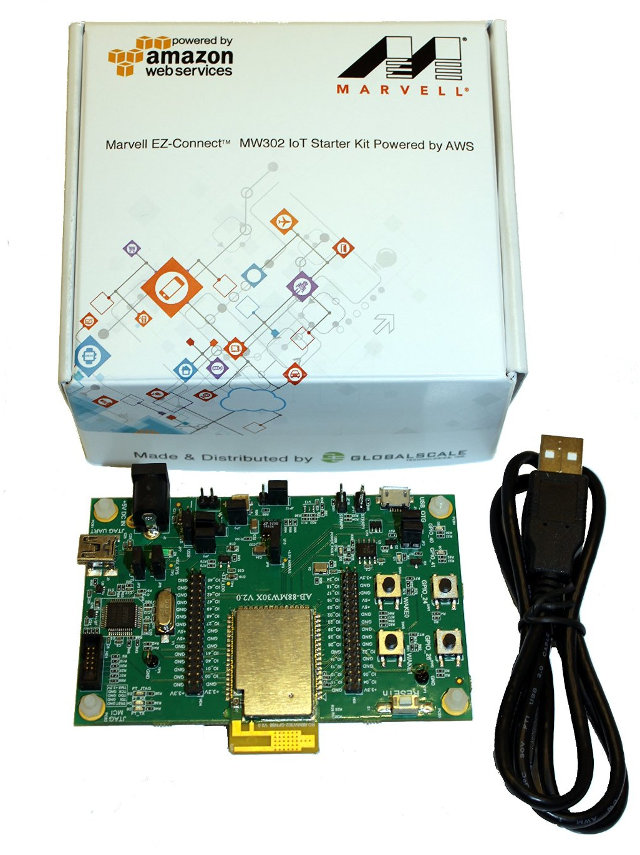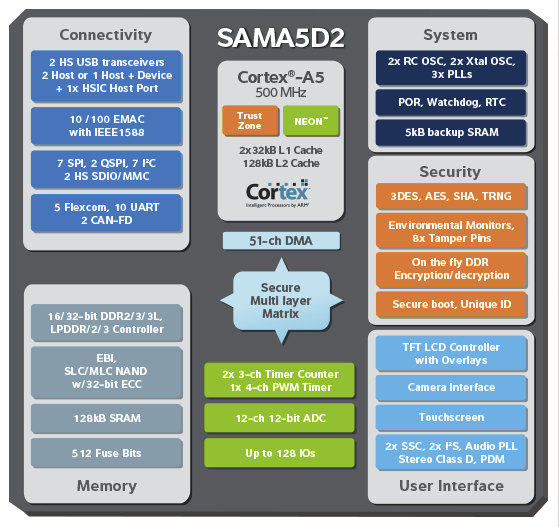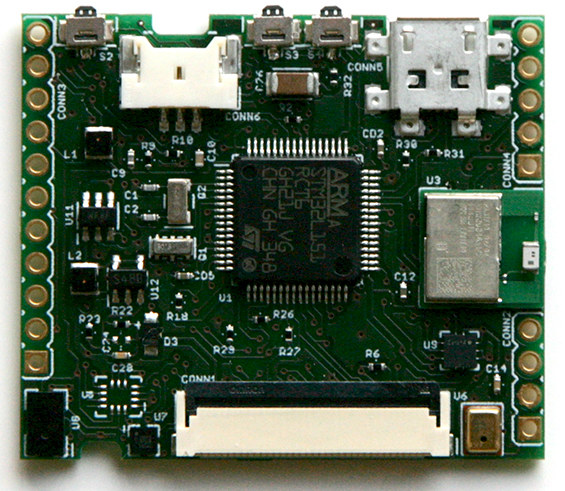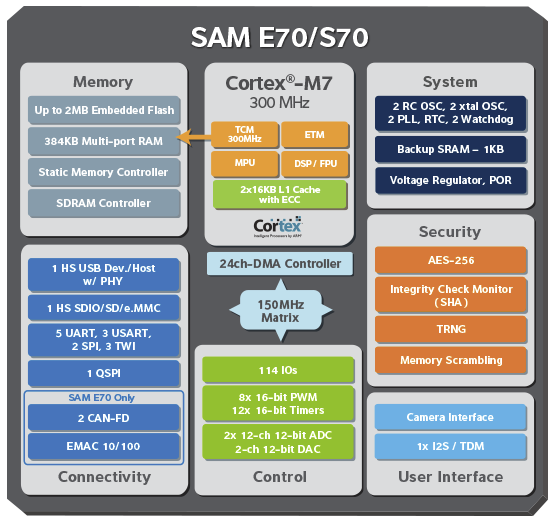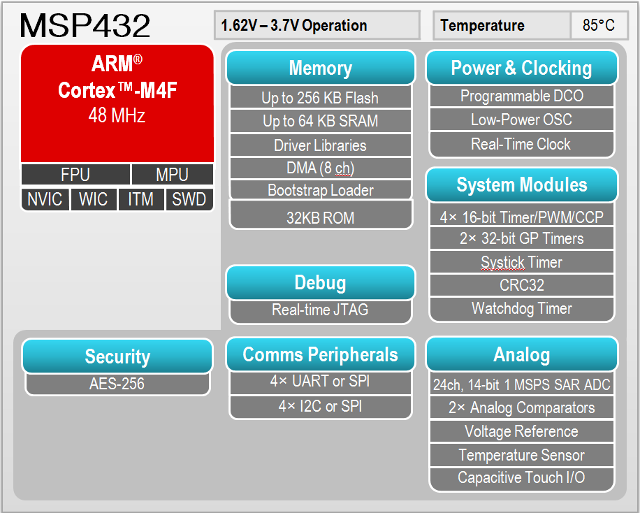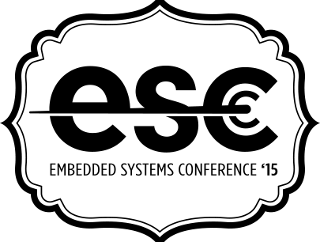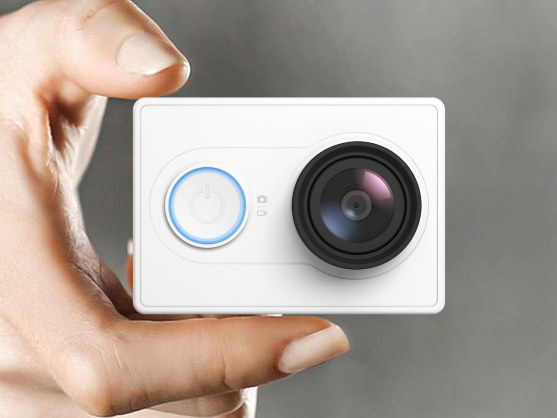I’ve recently learned that the battle between the two Arduino teams, namely Arduino SRL (arduino.org) in Italy, and Arduino LLC (arduino.cc) in the US, had taken another turn with Arduino LLC now branding their boards as Arduino in the US, and Genuino in the rest of the world. This may certainly bring confusion to new comers, especially as they have to deal with different version of the Arduino IDE. With that backdrop, Arduino LLC has now introduced Arduino 101 (aka Genuino 101) board powered by Intel Curie module with Quark SE x86 SoC with Bluetooth LE and a 6-axis combo sensor. Arduino 101 specifications: SoC – Intel Curie compute module including an Intel Quark SE x86 32-bit microcontroller @ 32 MHz and an a DSP sensor hub @ 32Mhz with 384 KB flash, 80 KB SRAM (24KB available for sketches), , Bluetooth LE, and 6-axis combo sensor with accelerometer and […]
Marvell EZ-Connect MW302 IoT Starter Kit Supports AWS IoT Cloud Services
Amazon has just launched AWS (Amazon Web Services) IoT (Beta), a cloud platform that lets connected devices securely interact with cloud applications and other IoT devices. As pasrt of the announcement, they also released AWS IoT SDK that comes in three flavors: Embedded C SDK for C-based platforms such as Linux, RTOS, with variants for OpenSSL and mbed TLS. JavaScript SDK in Node.js Arduino Yún SDK. Ten started kits are currently officially supported by AWT IoT, many of them being existing platforms such as LinkIt One, BeagleBone Green, Intel Edison, or TI LaunchPad CC3200, with several of these kits including SeeedStudio’s Grove modules. One of the kits that’s completely new, at least to me, is Marvell EZ-Connect MW302 IoT Starter Kit which include a mini USB to USB cable, and Marvell 88MW302 development board with the following (preliminary) specifications: SoC – Marvell EZ-Connect MW302 ARM Cortex-M4 WiSoC with 512KB SRAM […]
Atmel Introduces SAMA5D2 Cortex A5 SoC with Extended Temperature Range, Lower Power Consumption
Today, the news broke out that Atmel will be bought by Dialog Semiconductor for about $4.6 billion. The Anglo-German company is little known as their main products are PMIC, audio and connectivity chips, but they’ve still managed to get the financing to purchase Atmel. But that’s not the purpose of the post today, and instead I’ll cover a new SAMA5 Cortex A5 SoC recently announced by the company, targeting industrial Internet of Things, wearables and point of sale applications. SAMA5D2 key features and benefits: ARM Cortex-A5 core running at 500MHz (785DMIPS). Floating point unit (FPU) for high-precision computing and accelerated data processing. 128KB of L2 cache for system performance Low power consumption Less than 150mW in active mode at 500MHz with all peripherals activated Less than 0.5mW in low power mode with SRAM and registers retention Sub 200µA in retention mode with context preserved New backup mode with DDR in […]
LimiFrog is a Bluetooth 4.1 Wearables Devkit Based on STM32L4 with Lots of Sensors (Crowdfunding)
LimitFrog is a tiny board powered by STMicro STM32-L4 microcontroller with Bluetooth 4.1 connectivity, plenty of sensors, and that can run code bare metal as well as RiOT real-time operating system. LimiFrog specifications: MCU – STMicro STM32-L4 ARM Cortex M4 micro-controller @ 80 MHz with DSP, 512KB flash, 128KB RAM External storage – 8MB serial flash for data that supports FAT32 file system Display – 160×128 RGB565 OLED display Connectivity – Bluetooth 4.1 (Panasonic PAN1740) Sensors (Follow this link for datasheets of most components) Pressure, altitude & temperature (LPS25H) 3-axis accelerometer, 3-axis gyroscope (LSM6DS3) 3-axis magnetometer (LIS3MDL) Ambient light, proximity and distance (VL6180X) Ambient sound (SPU0414H5H) USB – micro USB port for power and programming Expansions – 11-pin (through holes) providing access to SPI, I2C, CAN, PWM, GPIOs, ADC, DAC, Analog out, and power signals (3V out GND) Battery – 500 mAh (hours to weeks of battery life depending on […]
Atmel SAM S70 and SAM E70 Cortex M7 MCUs, SAM V71 Xplained Board Are Now Shipping
ARM Introduced Cortex M7 IP in September, and ST Micro simultaneously announced its STM32F7 Cortex M7 MCU clocked up to 200 MHz, and boards are now available, including some running Linux. But two other companies have licenses Cortex M7, Freescale with its Kinetis KV5x micro-controllers which are yet to be mass-produced, and Atmel which has recently announced their SAM S70 and E70 micro-controllers are now in mass production. SAM E70 and S70 have similar features, but E70 offers some extra interface like CAN and Fast Ethernet: ARM Cortex-M7 core running at up to 300MHz (1500 CoreMark) Up to 2MB Flash and 384kByte SRAM Floating point unit (FPU) for high-precision computing and accelerated data processing High-performance internal memory architecture with user configurable Tightly Couples Memories and System memory, and 16kB I and D-cache High Speed USB Host and Device with on-chip high-speed PHY CMOS image sensor interface AES hardware encryption engines, […]
Texas Instruments Introduces MSP432 ARM Cortex-M4F MCU Family
Texas Instruments has just launched a successor for its 16-bit MSP430 MCU family with MSP432 MCU series featuring a 32-bit ARM Cortex-M4F core, a DSP, up to 256 KB flash, up to 64 KB SRAM, and according to the company ” delivering a ULPBench score of 167.4 outperforming all other Cortex-M3 and -M4F MCUs on the market”. The new MCU family targets consumer & portable electronics, building & factory automation & control, smart grid & energy, healthcare & fitness, and wearables applications. Key features listed for MSP432P4xx: MCU – 32-bit ARM Cortex-M4F up to 48 MHz with FPU and DSP. Delivers 3.4 Coremark/MHz Memory – Up to 64 KB RAM; Selectable RAM retention Storage – Up to 256 KB Flash; dual bank for simultaneous reading and writing Security – 256-bit AES encryption, JTAG access lock, 4 IP Protection regions EnergyTrace Technology Real-time power measurement and debugging Generate application energy profiles including […]
Embedded Systems Conference 2015 Schedule – May 6-7, 2015
The Embedded Systems Conference took the name “Design West” for a couple of years, but this year, there’s no mention of Design West, and the Embedded System Conference 2015 will take place in Boston, MA, US on May 6-7, 2015. The 2-day event will have a demo hall, and well as sessions divided into 8 tracks: Connected Devices and the IoT Embedded Software Design Hardware: Design, I/O and Interfacing Prototyping Embedded Systems Design Software: Design, Languages, & Quality Fantastical Theater Teardowns The full schedule has now been posted, and I’ll build a virtual schedule with some of the sessions provided. Wednesday May 6, 2015 8:00 – 8:45 – Understanding Google/Nest Thread by Michael Anderson, Chief Scientist, The PTR Group, Inc. The IoT will live or die based on its connectivity. In examining existing wireless protocols, Google/Nest found most of them lacking. In order to address the needs for low-power wireless […]
Xiaomi Yi Full HD Action Camera Sells for $64
Xiaomi has decided to enter the sports camera market with an inexpensive 1080p action camera called Xiaomi Yi that will sell for 399 CNY ($64) in China, and outspecs the $135 entry-level Go Pro Hero camera. Specifications of the Yi camera: SoC – Ambarella A7LS ARM1136 SoC System Memory – N/A Storage – Some internal storage for firmware, plus a micro SD slot for pictures/videos (up to 64GB) Camera 16MP Sony Exmor R BSI Back-illuminated CMOS Image Sensor Aspheric HD Optical Glass Lens / F2.8 Large Aperture 155° Ultra Wide Angle 1080p 60/48/30/24fps, up to 960p60, 720p120, 480p240 video recording Multiple photo shooting modes: Single shot, Self-Timer, Time-lapse, Burst Shot Display – None Video Output – micro HDMI port Audio – Dual-channel 96 KHz sampling rate, 92 dBa SNR Connectivity – WiFi & Bluetooth 4.0 (Broadcom) for connection with Android / iOS devices Sensors – ST High Performance 3-Axis G-sensor […]


